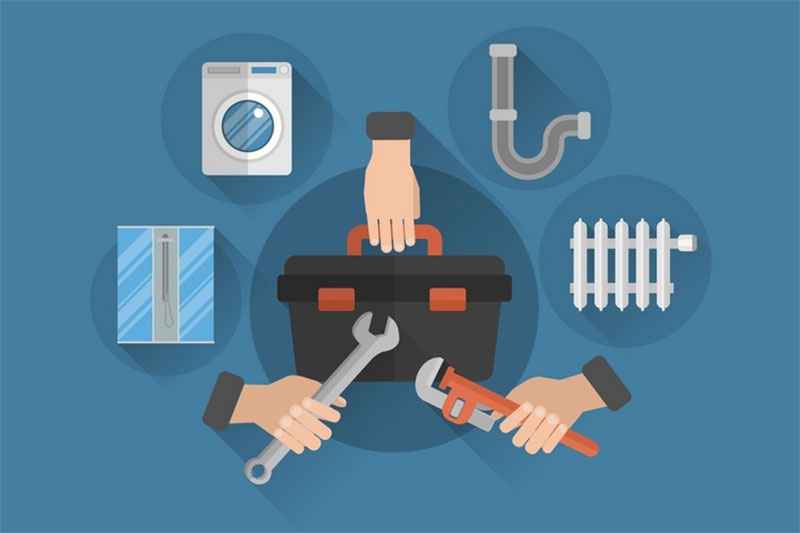How to Become a Plumber?

posted:4 years agobyAwatef Hamdiin Apprenticeships
Plumbing is a very profitable job in the UK. Despite this good news, the entry to this field requires mastering a great set of skills. Let us surprise you; plumbing is a professional job, and as people study to become doctors, others study to become plumbers. If you want to become a plumber, keep reading this article.
What is Interesting in Plumbing?
Plumbing is any system that transports liquids for a wide range of applications inside and outside the building. Plumbing uses pipes, plumbing fittings, cabinets, and other appliances to transport liquids. This field is fascinating, as there are many construction companies, mobile phone applications for home maintenance that hire plumbers. This job is in massive demand, be it for a permanent position or hourly rated work. Licensed plumbers tend to remain in the profession throughout their careers. Many of them even continue to work in part-time mode, beyond the usual retirement age, helping the next generation by providing them with vocational training. Take a look at; How to Become a Labourer in the UK?
What is a Plumber?
A Plumber is anyone installing and maintaining pipes in our homes and buildings. It can also refer to installing and repairing pipes, fittings, and appliances concerning water supplies, sewage systems, etc., inside and outside buildings. Plumbers do several tasks. They are usually involved in manual work. Sometimes they are found in the construction company’s team and make the installation process more efficient. Plumbing is undoubtedly a profession that has a large number of possible career paths. Plumbers do often work side by side with architects, where they can add water supplies and pass them through walls and installation sites.
What Does a Plumber Do?

Anyone interested in becoming a plumber should know about the specializations and the significant tasks that plumbers do. Let's take a look at these different specializations in plumbing.
1.Sprinkler Fitters
Plumbers should map out the different sites for lying tubes and split between them. This specialization is known as tube layering.
2. Pipes workers/ specialists:
Plumbers who are specialized in pipes layering are known as pipe workers. They install the lines needed for the plumbing system. They often repair drainage for storms or water pipes. In this specialty, the work is backbreaking because it is also related to digging for pipes and arranging trenches, where the pipes will be placed.
3. Residential/ industrial/ public plumbers
They are responsible for large industrial plumbing projects. They also install and maintain heating and cooling pipe systems in industrial, commercial, and industrial settings.
4.Stream fitters:
air conditioning in this area is known as Steamfitters. They install high-pressure steam-carrying pipe systems wherever heat and electricity are generated.
Where do Plumbers work?
Many plumbers work for small companies that employ less than ten people. Some may also be found working in larger entities or for the government. Many large buildings, educational areas, hotels, campuses, airports, and municipal buildings also employ their plumbing staff. In short, any place with a water system is a good place for a plumber. The truth is that when the need arises, it will certainly participate. You may also visit; What is a Blue Collar Job?
A Plumber Job Description:
Construction companies always post about hiring plumbers or different specialists for certain projects. Some common requirements exist in the majority of job adverts:
-Age: plumbers should not under-aged applicants.
-Having a certificate: although certifications are not basic requirements, they help plumbers to progress professionally. Once the plumber has completed his vocational training and has successfully obtained his license, he will be eligible for certificate tests. The cost of becoming a plumber depends on the type of program you intend to enroll in. The most common program for aspiring plumbers is the national vocational training. Having achieved two years of apprenticeship.
-Having achieved a vocational training program. The most common way to engage in vocational training is through the Plumbers' Association. Another method is to study under a licensed plumber.
-Having a certificate in professional safety.
Plumbing Skills

Plumbing skills are connected to the different qualifications gained during training to become a plumber. In the field of plumbing, there are three main areas of qualifications include;
-Manual skills: the ability to handle different materials and supplies.
-Coordinating skills: plumbers should be able to coordinate with the rest of the team.
-Problem-solving skills: plumbers should know how to deal with complicated construction cases such as old water supplies, leakage, broken or dysfunctional streams.
How Much Does a Plumber Earn in the UK?
Plumbers salaries can differ in terms of experience, specialty, and location. Plumbing workers have completed the required vocational training program, without previous experience can earn up to £15,000 per year. Experienced or specialized plumbers can earn up to £25,000 per year.
